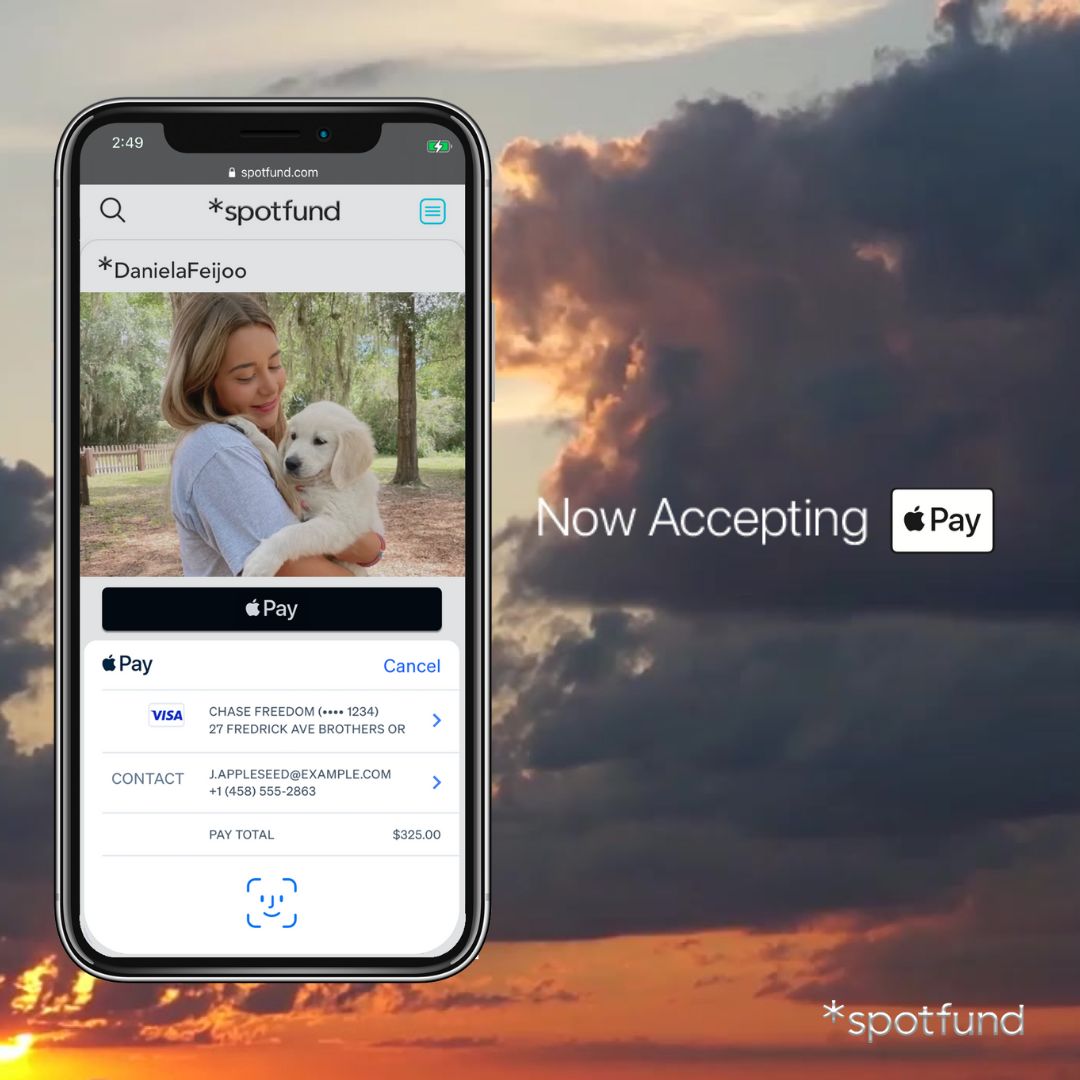Have you ever savored a delicious meal while at the same time supporting a cause you deeply care about? If not, then the concept of restaurant fundraisers work might just be the delightful mashup of philanthropy and gastronomy you've been waiting for. Imagine, a community gathering where every bite you take doesn't just satiate your hunger but also brings you a step closer to making a difference. Yes, that's the beauty of restaurant fundraisers!
In this blog post, we're going to delve into the exciting world of restaurant fundraisers. We will explore their process, the potential benefits they offer, and how they can bring about a ripple effect of success not just for the cause at hand, but also for the participating restaurants and the community as a whole. So, whether you're a seasoned event planner, a restaurant owner, a restaurant manager, a philanthropist, or just a curious soul, read on! It's time to see how the blend of food and fundraising can create a potent recipe for change.

What are Restaurant Fundraisers
A restaurant fundraiser is an event where a restaurant partners with a non-profit organization or cause to raise money. This partnership usually involves the restaurant donating a certain percentage of the event's sales to the cause. Essentially, it's a win-win arrangement: the non-profit raises money and awareness, while the restaurant boosts its business, often during typically slow periods, and strengthens its reputation within the community.
Different Types of Restaurant Fundraisers
- Dine-and-Donate: This is perhaps the most straightforward type of restaurant fundraising. The restaurant agrees to donate a percentage of the sales made during the event to the cause. Participants simply need to dine at the restaurant during the specified timeframe.
- Ticketed Fundraising Events: For these fundraisers, tickets are sold for a special meal or event at the restaurant. The ticket price usually includes a meal and a donation to the cause.
- Themed Restaurant Nights: These fundraisers add an element of fun to the proceedings. A restaurant night could be based around a particular cuisine, holiday, or cultural event, and often include additional fundraising activities like raffles or auctions.
- Cook-offs or Bake-offs: These fundraisers involve a competitive element, with participants (which could include the restaurant's chefs, local celebrities, or enthusiastic amateurs) competing to create the best dish. Attendees can donate to vote for their favorite.
- Virtual Fundraisers: These are a newer type of fundraiser, spurred by technological advancements and the changes brought about by COVID-19. These fundraisers often leverage online fundraising platforms, like *spotfund, to manage donations. It's a great way to adapt traditional fundraising to our increasingly digital world.

The Process of Organizing a Restaurant Fundraiser
Organizing a restaurant fundraiser involves careful planning, communication, and execution. Here's a step-by-step guide to help you navigate the process:
Steps 1: Choosing a Cause, Team Assembly, Goal Setting
- Choosing a Cause: The cause is the heart of your fundraiser. It should be something you're passionate about and believe others will want to support. It could be local charities, local schools, sports teams, community projects, or even a global cause. Make sure to clearly understand the cause and its mission, as you'll need to convey this to others during your fundraiser.
- Team Assembly: Organizing a restaurant fundraiser is a team effort. Gather a group of reliable and enthusiastic people who are willing to help with planning, promotion, and execution. Assign roles based on skills and interests, such as team leader, negotiator, marketer, and event coordinator.
- Goal Setting: Set clear, specific, and achievable goals for your fundraiser. This could be a monetary goal (e.g., raising $5,000), a participation goal (e.g., 100 attendees), or both. Your goals will help guide your planning process and give you something to work towards.
Step 2: Restaurant Selection
- Alignment with Cause: Choose a local restaurant that aligns with your cause. This could mean a restaurant that shares similar values, has a history of supporting similar causes, or simply fits with the culture or image of your cause.
- Capacity and Location: The restaurant should be able to accommodate your expected number of attendees and be easily accessible.
- Reputation and Popularity: A popular restaurant can draw more attendees to your fundraiser. Check online reviews and get local opinions to gauge a restaurant's reputation.
- Possible Options: Both local restaurants and larger chains can be great options. Local restaurants might have stronger community ties, while chains often have established fundraising programs you can tap into.
Step 3: Negotiating with Restaurants
- Pitch your Cause: Clearly and passionately explain your cause and how the fundraiser will benefit it. Show the restaurant how partnering with your cause can also benefit them (e.g., increased business, community goodwill).
- Discuss Logistics: Be clear about the date, time, expected attendance, and what you're hoping the restaurant will provide (e.g., a percentage of sales, a flat donation, etc.).
- Stay Flexible: Be open to the restaurant's suggestions and ready to negotiate. This could be a win-win partnership, so find a solution that benefits both parties.
Step 4: Marketing and Promotion
- Social Media: Create event pages on platforms like Facebook, Instagram, and Twitter. Share regular updates and encourage others to share as well.
- Local Media: Reach out to local newspapers, TV stations, and radio stations. They often cover community events and might be willing to promote your fundraiser.
- Word-of-Mouth: Encourage your team, friends, and family to spread the word. Personal recommendations are highly effective.
- Flyers and Posters: Depending on your community, physical advertising might be effective. Post flyers at community centers, schools, and other local hotspots.

The Benefits of Restaurant Fundraisers
Benefits to the Cause
- Raising Money: The primary benefit for the cause or non-profit is the financial support generated through the fundraiser. This money can be instrumental in funding projects, programs, and operations, or in some cases, simply keeping the organization afloat.
- Increasing Awareness: In addition to raising funds, these fundraising events also provide a platform to spread awareness about the cause. Attendees can learn more about the mission and needs of the organization, potentially leading to ongoing support and advocacy.
- Community Engagement: These fundraiser events allow causes to engage directly with their community, creating strong relationships and opening doors for future collaborations.
Benefits to the Restaurant
- Increased Business: Fundraisers often attract a large number of attendees, increasing the restaurant's sales for that time period. This can be particularly beneficial if the event is scheduled during a typically slow period for the restaurant.
- Community Goodwill: By hosting a fundraiser, a restaurant shows its commitment to its local community, earning goodwill and fostering a positive image.
- Brand Promotion: These events can significantly boost a restaurant's visibility, with the potential to draw in new customers who may not have dined there before. The association with a worthy cause can also enhance the restaurant's brand image.
Benefits to the Community
- Fostering a Sense of Community: Restaurant fundraisers often bring together diverse groups within a community, fostering a sense of unity and common purpose.
- Local Engagement: These events encourage locals to engage with and support their community in a fun and enjoyable way. They get to enjoy a meal while supporting a good cause.
- Support for Worthy Causes: Fundraisers directly contribute to worthy causes within the community, whether it's supporting a local school, helping a family in need, or contributing to a larger charitable mission.

10 Tips and Tricks for a Successful Restaurant Fundraiser
Planning and Organization Tips
- Start Early: The earlier you begin planning, the better. This gives you ample time to negotiate with restaurants, promote your event, and sort out all the details.
- Assemble a Strong Team: A dedicated, enthusiastic team can make the planning process smoother and more enjoyable. Delegate tasks based on individual skills and interests to ensure each task is handled effectively.
- Build a Backup Plan: Things don't always go according to plan. Having a backup plan can help you adapt quickly and ensure your event goes ahead, no matter what.
Promotion Strategies
- Use Multiple Channels: Utilize social media, local press, word-of-mouth, and any other channels that can help spread the word about your event.
- Tell a Story: People connect with stories. Share the story of your cause and the impact the fundraiser will have. This can make people more emotionally invested in your event.
- Involve the Restaurant: Ask the restaurant to promote the event as well. They can use their own channels, such as their website, social media, or physical signage in the restaurant.
Day-of-Event Tips
- Arrive Early: Get to the restaurant early to set up any decorations, informational materials, or additional activities. This also allows you to address any last-minute issues that arise.
- Create a Welcoming Environment: Make attendees feel welcomed and appreciated. This could involve greeting them personally, giving a brief speech about the cause, or simply creating a warm, enjoyable atmosphere.
- Document the Event: Take plenty of photos or videos during the event. This not only creates memories but also provides promotional material for future fundraisers.
- Thank Everyone: Express your gratitude to everyone involved, from the restaurant staff to your volunteers, and of course, the attendees. A simple thank you can go a long way in fostering good relationships and ensuring the success of future events.
Remember, the ultimate goal of your restaurant fundraiser is to support your chosen cause while creating a pleasant experience for all attendees. Keeping this in mind during your planning and execution can guide you toward a successful event.

Trends in Restaurant Fundraisers
In our rapidly evolving digital era, restaurant fundraisers are not just confined to physical events but are increasingly being shaped by technological advancements and new societal norms. From virtual events to partnerships with online platforms, let's explore what the future holds for restaurant fundraisers:
1. Virtual Fundraisers
The necessity for remote participation during the COVID-19 pandemic has paved the way for virtual fundraisers, which have proven to be quite successful. People can support causes they believe in from the comfort of their own homes, by ordering delivery or pick-up from participating restaurants, with a portion of the proceeds donated to the cause. This trend is expected to endure in the post-pandemic era.
2. Partnerships with Delivery Apps
With the surge in food delivery services, some restaurants and nonprofits are harnessing these platforms to reach out to a larger audience. By collaborating with delivery apps like Grubhub and DoorDash, supporters can contribute to their favored cause without leaving their homes.
3. Sustainability and Social Responsibility
As people become increasingly conscious of societal and environmental issues, restaurant fundraisers that support these values or partner with eco-friendly restaurants will gain more traction.
4. Online Fundraising Platforms
Platforms such as *spotfund have revolutionized the fundraising landscape by offering an easy and efficient way to collect donations. For restaurant fundraisers, these platforms can help reach a wider audience, keep track of funds raised, and facilitate the donation process.
Setting up a fundraising campaign on *spotfund is a breeze. You can customize your campaign page, share the story behind your cause, and upload compelling images to engage potential donors. Once your campaign is live, sharing it across your social networks is just a click away. From Facebook to Twitter, Instagram to LinkedIn, *spotfund integrates seamlessly with various platforms, helping you reach a wider audience. And it absolutely has no platform fees, which means more of the money you raise goes directly toward your cause.
So why wait? Take your restaurant fundraiser to the next level. Start your restaurant fundraising campaign today with *spotfund!


